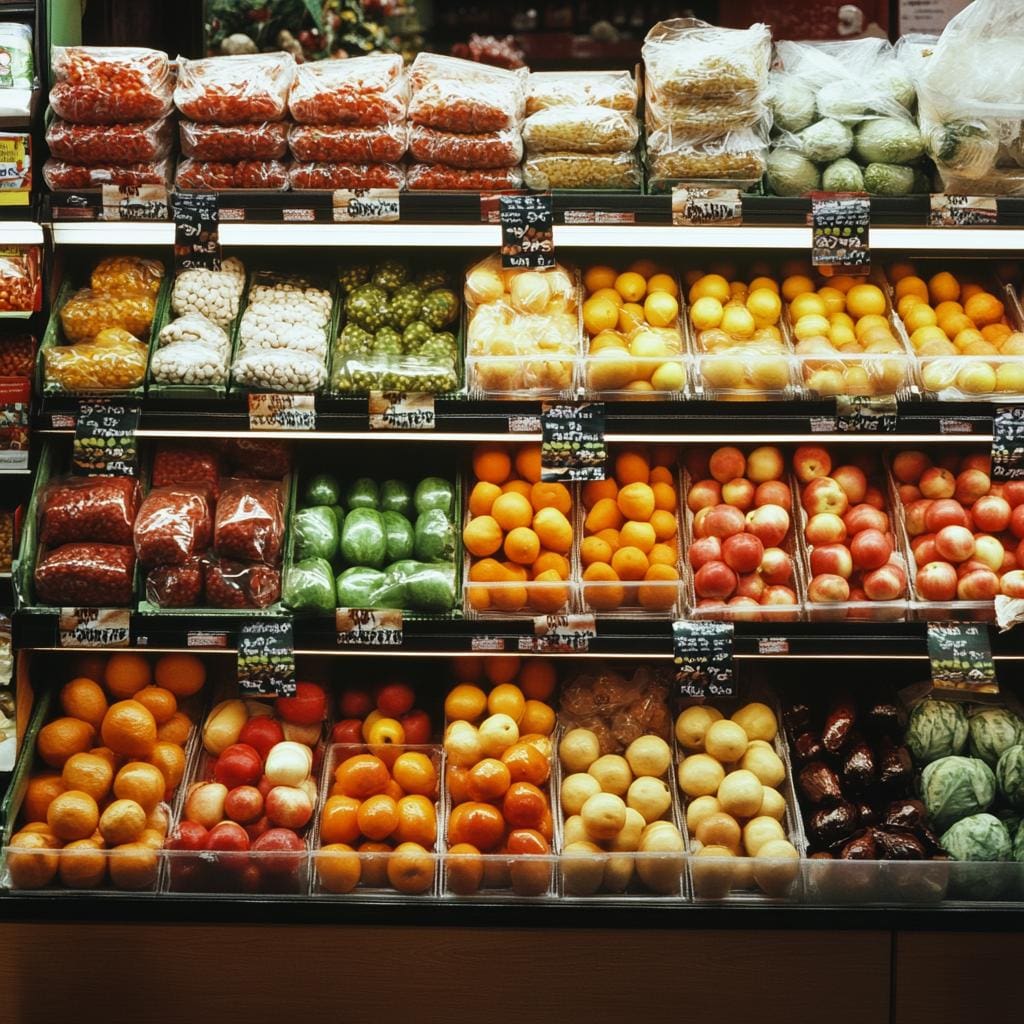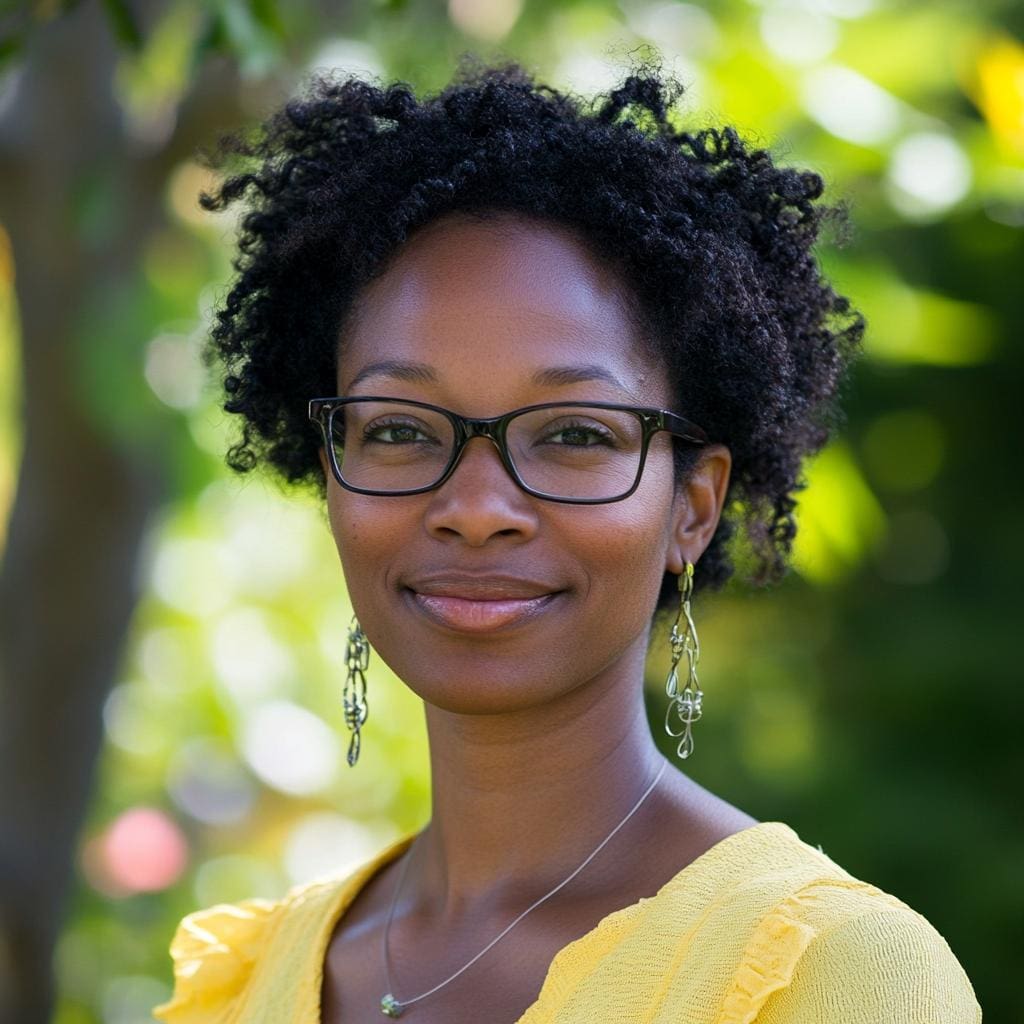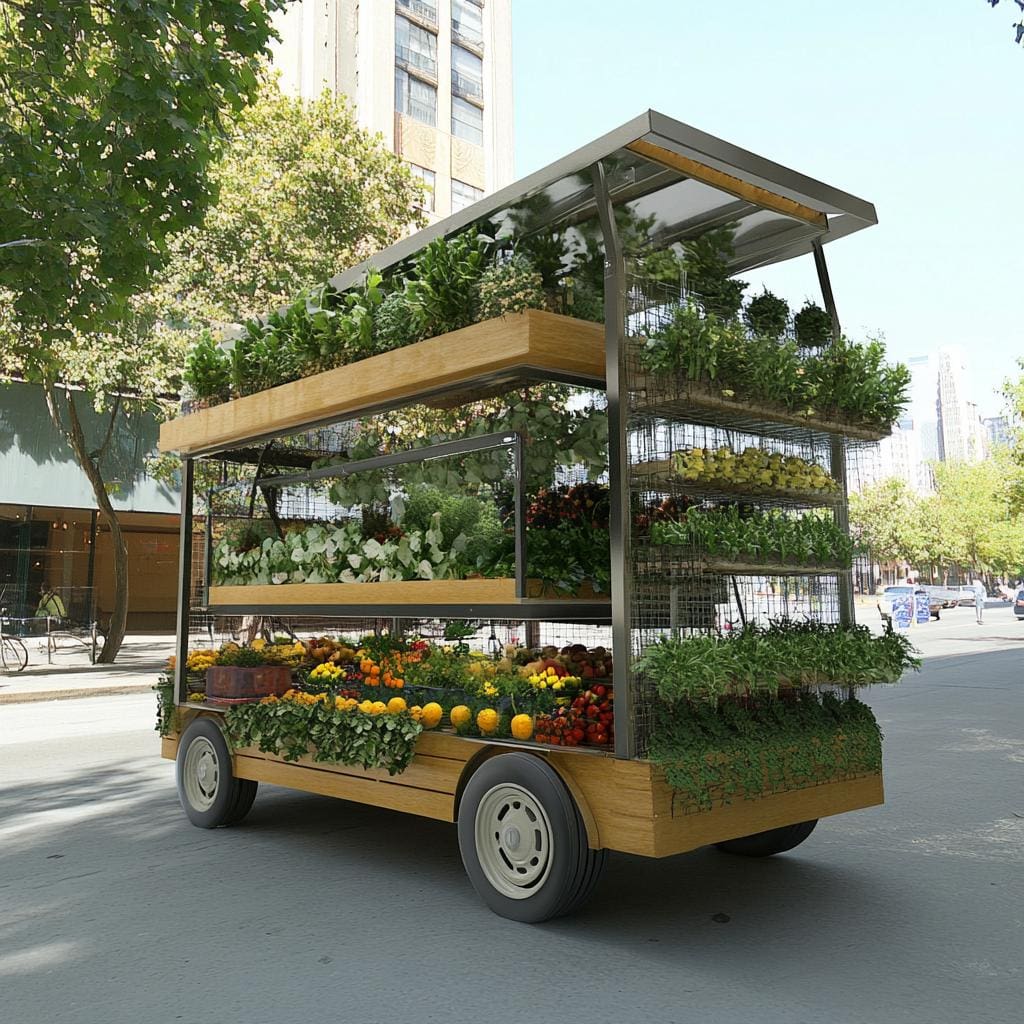In “Tackling Food Deserts with Gwenna Hunter,” the conversation steers through innovative ways to address food insecurity in urban landscapes like Los Angeles. Gwenna discusses the power of community-driven solutions, highlighting various local projects aimed at providing access to nutritious, affordable food to underserved areas. From grassroots initiatives to city-wide collaborations, this video sheds light on how collective action can transform “food deserts” into thriving hubs of health and vitality. 🌿🍎🌟
In the bustling heart of Los Angeles, food deserts cast long shadows, creating a stark divide between abundance and scarcity. But amidst this challenge, beacon of hope Gwenna Hunter steps forward, armed with a vision to transform these underserved areas. Her story, passionately unravelled in the YouTube video “Tackling Food Deserts with Gwenna Hunter,” offers a glimpse into the world of community-driven initiatives striving for equity in food access.
Through a maze of fragmented phrases and evocative thoughts, Hunter’s narrative weaves together triumphs, struggles, and the relentless spirit of those determined to bridge this gap. She brings to light the foundational efforts made to uplift communities, the importance of resource allocation, and the transformative power of grassroots organizations.
Join us as we delve into the insights shared by Gwenna Hunter, exploring the nuances of food deserts, the significance of community support, and the inspiring actions taken to make wholesome, nutritious food accessible to all. Whether you’re a passionate advocate for food justice or simply curious about the dynamics of food equity, Hunter’s journey exemplifies the profound impact one can have in the quest for a just and nourishing future.
Understanding Food Deserts: The Core Issues

Food deserts represent areas where access to affordable and nutritious food is limited or non-existent, often due to a lack of grocery stores within convenient traveling distance. This issue predominantly affects lower-income communities and has notable implications on public health. Some of the **core issues** surrounding food deserts include:
- Limited Access to Fresh Produce: Fresh fruits and vegetables are often scarce, leading to reliance on processed and unhealthy food options.
- Economic Disparity: Lower-income areas lack investment in grocery infrastructure, resulting in fewer stores and higher prices for nutritious food.
- Health Risks: Residents of food deserts face higher risks of chronic diseases, such as diabetes and heart disease, due to poor diet quality.
Addressing food deserts requires multifaceted approaches including investment in local markets, community gardens, and mobile food services. **Stakeholder involvement** is crucial, encompassing local governments, non-profits, and community initiatives to create sustainable solutions. Below is an illustrative table summarizing stakeholder roles:
| Stakeholder | Role |
|---|---|
| Local Governments | Provide funding and policy support to encourage grocery store development. |
| Non-Profits | Initiate community-driven projects and provide educational resources on nutrition. |
| Community Members | Advocate for needs and participate in local food ventures. |
Community Initiatives and Gwenna Hunters Impact

“`html
Gwenna Hunter has been instrumental in addressing food deserts in Los Angeles, creating impactful solutions to combat food insecurity. Her efforts have fostered collaborative projects that offer practical, sustainable aid to communities in need. Key elements of her initiatives include:
- Partnership with local supermarkets
- Organizing urban farming workshops
- Hosting weekly food distributions
- Supporting families with nutritional education
Moreover, her “Cute Corner Project” has become a beacon of hope, providing fresh produce and essential resources. Community feedback highlights the project’s profound impact:
| Initiative | Impact |
|---|---|
| Weekly Food Distributions | 500 families reached |
| Urban Farming Workshops | 300 participants educated |
| Partnerships | 5 local supermarkets |
“`
Building Connections: Policy Advocacy and Strategic Partnerships

Gwenna Hunter’s initiatives highlight the importance of ***strategic partnerships*** and ***policy advocacy*** in addressing food deserts. **Creating meaningful connections** with local and national organizations enables the pooling of resources and knowledge, vital in tackling the pressing issue of food inequality. By promoting legislation that prioritizes food security and community access, Gwenna works to bridge the gap between food abundance in certain areas and scarcity in others.
A crucial component of Gwenna’s approach involves forming alliances with:
- Local farmers and markets
- Educational institutions
- Community leaders and activists
These partnerships not only provide fresh and nutritious food options but also foster community engagement and trust. Moreover, the strategy includes advocating for policies that support sustainable urban planning and localized food production, ensuring long-term solutions are put in place to eradicate food deserts.
| Partnership Type | Benefits |
|---|---|
| Local Farmers | Fresh produce and community support |
| Schools and Universities | Education on nutrition and food sustainability |
| Activists | Policy changes and advocacy strength |
Innovative Solutions: Urban Farming and Mobile Markets

In a groundbreaking approach to tackle food deserts, Gwenna Hunter champions the cause by leveraging **urban farming** and **mobile markets**. **Urban farming** involves transforming vacant lots and underutilized spaces in cities into lush, productive farms that can sustainably grow fresh produce. This not only ensures a steady local supply of fruits and vegetables but also creates green spaces that enhance urban aesthetics and contribute to environmental health.
Meanwhile, **mobile markets** act as roving grocery stores that deliver fresh, affordable produce directly to underserved neighborhoods. Equipped with versatile, refrigerated trucks, these markets pop up in community centers, schools, and other accessible locations, ensuring that residents have convenient access to nutritious food options. With such innovative solutions, Gwenna Hunter and her partners are making significant strides in eradicating food insecurity and promoting healthy eating habits among urban populations.
| Solution | Benefits |
|---|---|
| Urban Farming | • Local produce • Green spaces • Community involvement |
| Mobile Markets | • Accessibility • Affordability • Convenience |
Empowering Local Communities: Sustainable and Inclusive Practices

Gwenna Hunter is a beacon of hope in Los Angeles. Through the **Project Live Los Angeles**, she tackles the challenges faced by food deserts, ensuring that marginalized communities have access to nutritious food. Gwenna collaborates with local lgbc centers to provide not just food, but also **resources** and **support**, promoting sustainability and inclusivity for everyone.
Gwenna’s efforts extend beyond just food distribution. She creates spaces where locals can engage in community-building activities like gardening and cooking classes, fostering a sense of belonging and resilience. Here are some of the key initiatives:
- **Community Gardens**: Empowering people to grow their own food.
- **Cooking Workshops**: Educating on nutritious meal preparation.
- **Support Groups**: Offering emotional and social support.
In these initiatives, there is an overarching theme of **connection** and **empowerment**, making Gwenna’s work a template for other communities aiming to address food insecurity sustainably and inclusively.
| Initiative | Impact |
|---|---|
| Community Gardens | Enhances self-sufficiency |
| Cooking Workshops | Boosts nutritional knowledge |
| Support Groups | Strengthens community bonds |
To Wrap It Up
As we wrap up this enlightening exploration on “Tackling Food Deserts with Gwenna Hunter,” we’re reminded of the significant efforts being made to bridge gaps in access to nutritious food, fostering a healthier and more equitable community. Gwenna’s dedication to transforming food deserts into zones of nourishment and hope is truly an inspiring journey.
Throughout this blog post, we’ve delved into her strategies and initiatives that are directly improving the lives of countless individuals in urban landscapes, particularly in Los Angeles. From innovative community projects to vital partnerships and grassroots efforts, the collective impact is undeniable.
Let’s carry forward the lessons and insights shared by Gwenna Hunter, remembering that addressing food insecurity requires collaborative action and unwavering commitment. Whether you’re inspired to support local initiatives, volunteer, or simply spread awareness, every small step contributes to a greater change.
Thank you for joining us on this journey. Stay tuned for more inspiring stories and impactful discussions. Let’s all play our part in nurturing healthier communities, one project at a time.



